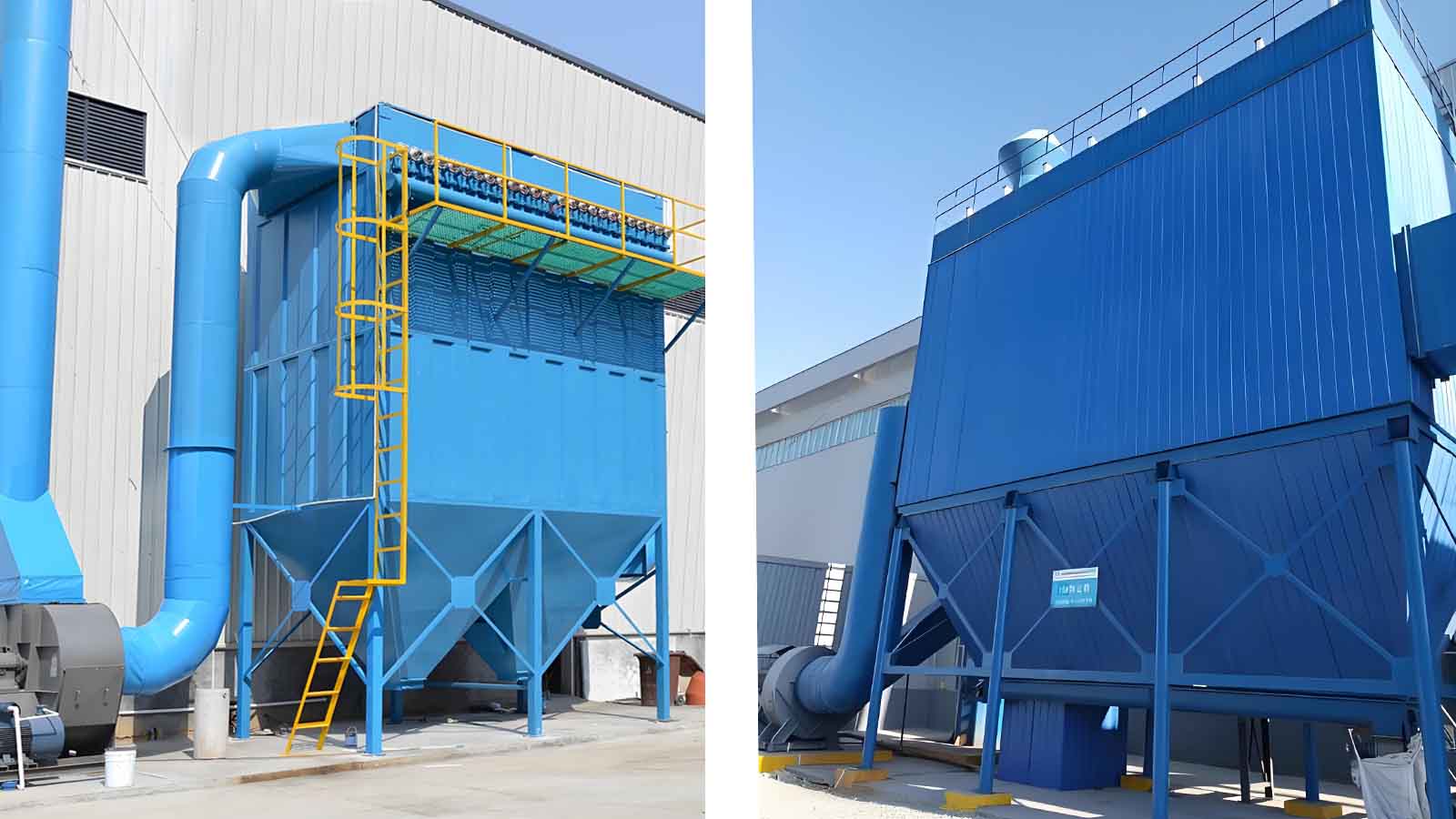The decrease of air volume of dust collector is a common problem faced by many industrial enterprises. It not only affects the dust removal efficiency, but also may lead to a series of chain reactions such as excessive emissions and increased energy consumption. This article will systematically analyze the five major causes of insufficient air volume, and provide practical solutions to help you quickly restore the best performance of the equipment.
I. In-Depth Analysis of Airflow Reduction Causes
1. System Design Defects
- Unreasonable design of air duct: improper design of sharp turns and reducing sections will cause airflow disorder and increase system resistance
- Uneven air volume distribution: if the air volume deviation of each filter unit exceeds 15%, the overall performance will be significantly affected
- Fan selection error: insufficient air pressure or too small air volume margin will lead to operation problems
2. Filter Medium is Blocked
- Progressive plugging process: surface dust accumulation → deep penetration → hardening of filter material
- Key judgment index: when the operating differential pressure continues to exceed 30% of the design value, intervention must be carried out
- Analysis of influencing factors: dust characteristics, humidity, ash cleaning methods, etc. will affect the blocking speed
3.Fan System Fault
- Performance degradation performance:
- Current fluctuation exceeds ± 10% of rated value
- Bearing vibration speed > 4.5mm/s
- Slow response of air volume regulation
- Common fault points:
- impeller wear, bearing damage, belt slip, etc
4. System Leakage
Impact: Every 5% leakage reduces efficiency by ~8%
Detection methods:
| Method | Application Scenario | Accuracy Level |
|---|---|---|
| Smoke Testing | Visual Leak Localization | Medium |
| Ultrasonic Detection | Micro-Leak Identification | High |
| Pressure Decay Test | System Integrity Evaluation | Relatively High |
5. improper operation and maintenance
- Typical misoperation cases:
- The filter bag is damaged due to the high setting of ash cleaning pressure
- No system purging during shutdown
- Ignore daily differential pressure record analysis

II. Comprehensive Solutions
1. Design optimization scheme
Key points of air duct reconstruction:
- Turning radius ≥ 1.5 times pipe diameter
- Reducing angle ≤ 15 °
- Install guide vanes at key parts
Recommendations for fan upgrade:
- Reserve 15-20% air volume allowance
- Consider variable frequency control scheme
2. Filter System Maintenance
Scientific ash removal strategy:
- Adjust the ash cleaning frequency according to the pressure difference change
- Pressure time dual control mode is adopted
- Complete ash cleaning cycle must be performed before shutdown
Filter material selection guide:
- Normal working condition: Polyester needle felt
- High temperature condition: P84 composite filter material
- High humidity condition: PTFE membrane filter material
3. Preventive Maintenance System
Three level maintenance system:
- Daily spot check (per shift)
- Regular maintenance (monthly)
- Overhaul (annually)
Key parameter monitoring:
- System differential pressure trend
- Fan running current
- Emission concentration change
III. Technical Q&A
Q: How to accurately diagnose airflow deficiency?
A: Follow this 3-step method:
Measure velocity at all pickup points (>20% deviation = fault)
Check system ΔP against design specs
Observe stack emissions for visible dust
Q: Cost-effective retrofits for older collectors?
A: Prioritize these upgrades:
VFD installation (20-35% energy savings)
High-efficiency filters (+30% dust capacity)
Smart cleaning sequence optimization
Q: Balancing cleaning frequency vs. filter life?
A: Best practices:
Start with OEM-recommended settings
Adjust based on actual ΔP
Target 10-15% ΔP drop post-cleaning
IV. Conclusion & Recommendations
Maintaining dust collector airflow requires a systematic approach. We recommend:
Documentation: Maintain equipment logs
Prevention: Implement scheduled maintenance
Evaluation: Conduct annual performance audits
Need support? Our engineers offer:
On-site diagnostics
Retrofit design services
Operator training programs

